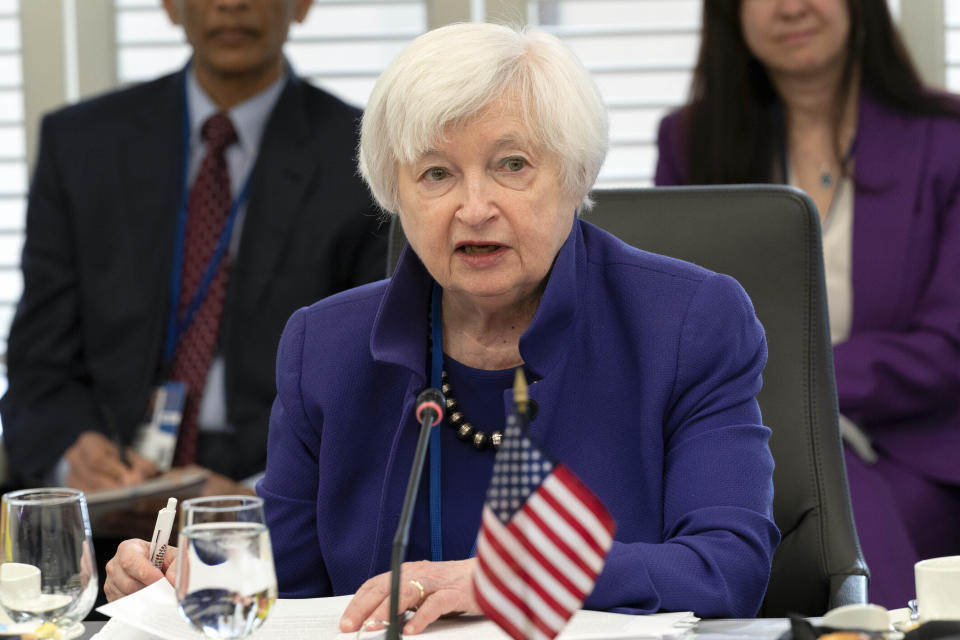Two Chinese officials were among 23 people sanctioned by the United States late last week for alleged links to human rights abuses, which were announced by the Treasury Department’s Office of Foreign Assets Control.
Sanctions were imposed on Gao Qi, a former police chief at the Ili Kazakh autonomous prefecture in northern Xinjiang, and Hu Liane, from the Communist Party’s United Front Work Department responsible for shaping ideology and social stability in the western province.
They aim to punish people and companies allegedly involved in the persecution of Uyghurs and other minorities in Xinjiang.
ALSO SEE: China Consumer Prices Fall Fastest in 3 Years, Alarming Beijing
30 companies on ‘Uyghur abuses’ blacklist
Meanwhile, the US Department of Homeland Security added three more Chinese companies to its Uyghur Forced Labour Prevention Act (UFLPA) blacklist, which now has some 30 firms accused of exploiting Uyghurs and other ethnic groups, according to a report by the South China Morning Post.
The companies – Cofco Sugar, Jingweida Technology and Xinya New Materials – are based in different parts of China, but each has been accused by the department of recruiting, transferring and exploiting persecuted minorities.
Jingweida Technology makes electrical converters, power supplies, capacitors and chargers for electric batteries, according to the SCMP, which said it was “alleged to have engaged in poverty alleviation programmes believed to be part of an overall forced labour strategy.”
Forced labour law actively enforced
The UFLPA, which is two years old, prohibits the import of goods produced in Xinjiang or by companies on the entity list unless US Customs and Border Protection officials are given “clear and convincing evidence” that the products were not produced with forced labour.
The US law relating to alleged genocide and crimes against humanity in Xinjiang and remains a key irritant in bilateral relations.
The inclusion of the two Chinese officials on Friday’s list was described as acts that “grossly interfere in China’s internal affairs” by a Chinese embassy official in Washington.
However, the Biden administration and the United Nations place considerable importance on moves to counteract China’s policies in Xinjiang.
Indeed, US Customs officials are said to have inspected more than 6,000 shipments worth over $2 billion over the past year and a half.
Meanwhile, the 21 other individuals on the human rights abuse list come from a range of other countries:
# officials from the Taliban in Afghanistan deemed responsible for the “repression of women and girls”;
# individuals accused of causing instability in the Central African Republic and the Democratic Republic of the Congo;
# the leaders of four criminal gangs in Haiti;
# two intelligence officers in Iran accused of “targeting dissenting voices”;
# the mayor of Monrovia in Liberia accused of “stoking violence”;
# three military leaders deemed responsible for rape and instability in South Sudan;
# and a prisons chief deemed responsible for serious abuses in Uganda.
- Jim Pollard
ALSO SEE:
Xinjiang Exports Jump as Trade to Central Asia Rises – Nikkei
China’s Sinopec Starts First Green Hydrogen Plant in Xinjiang
US Consultancy Firm in China Worked on Xinjiang Before Raids
China Raids Capvision Amid Crackdown on Due Diligence Firms
US Ban on Xinjiang Could Hit Global Solar Panel Industry
























